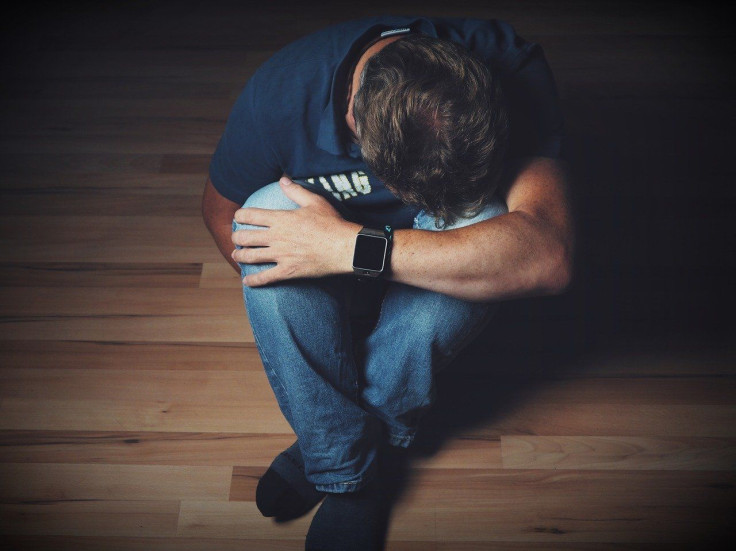Signs Of Depression To Watch Out For
KEY POINTS
- Depression is a real medical condition that affects millions of people worldwide
- It is different from feeling sad or grieving because of a particular life event
- Signs of grief and symptoms of depression may overlap but they are different in some ways
- Depression is treatable, and catching the signs of the condition is key to begin healing
The term "depressed" can sometimes be loosely used by people who are going through difficult times, but the actual major depressive disorder is quite different from being unhappy or experiencing grief. Although they may share some similarities, there are important factors that can determine whether someone is experiencing depression and should consider getting professional help.
As the American Psychiatric Association (APA) explained, depression is a serious medical condition that affects the way people feel, think and act. Here are some of the common signs of major depressive disorder to watch out for:
Depressed Mood
As mentioned, people typically use the term "depressed" to describe themselves when they're feeling sad, but how can one tell whether their sadness is marked by a life experience and when it is being caused by depression?
According to the APA, grief coming from painful experiences such as the end of a relationship or losing a loved one tends to come in "waves" brought about by memories of the person and can be experienced along with good memories as well. The difference with depression, the organization explained, is that a depressed person's mood, including their loss of interest in the things that they once enjoyed, persists "for most of two weeks."
In fact, the symptoms of depression typically have to last for at least two weeks to warrant a depression diagnosis, the APA noted.
Feelings Of Worthlessness
While people may feel worthless or hopeless every once in a while, feeling hopeless about life, in general, is a common symptom of depression. According to Healthline, this may include feelings of worthlessness, self-hate and inappropriate guilt. It may also be expressed in statements such as "What's the point?" and "It's all my fault."
Further, the APA noted that self-esteem usually remains in people who are experiencing grief. But feelings of self-loathing are quite common among people with major depression.
Increased Fatigue
Similar to losing interest in the things that they used to enjoy, including a decreased sex drive, people with major depression may also experience feeling very tired. This could lead to excessive sleeping. On the other hand, some may experience insomnia, which could also add to the person's fatigue.
As Healthline explained, depression has been linked with insomnia, with one making the other worse and vice versa.
On the flip-side, the APA also noted increases in "purposeless activities" such as pacing, being unable to sit still or having slowed movements as possible signs of depression. According to the organization, these actions must be severe enough that others are already noticing them.
Weight Changes
People experiencing depression may have marked changes in appetite and weight, whether it's a weight loss or a weight gain that’s not related to a diet, the APA said.
As Healthline also explained, a key indicator of whether one's weight loss or gain is related to depression is if the dietary changes are intentional. "If they're not, it may mean that they're caused by depression," Healthline said.
Emotional Behavior
According to Healthline, having uncontrollable emotions may also be a sign of depression as it can cause mood swings. This could mean crying one moment then experiencing an outburst of anger next, even if there are no changes in the environment to prompt the sudden change in response.
The outlet also noted that among men, depression can manifest itself in the form of irritability or risky behaviors such as substance abuse and "misplaced anger."
Suicidal Thoughts
Having suicidal thoughts is an important symptom of depression to catch and prevent. As the APA explained, the difference between the suicidal thoughts of a person who's grieving a person who's depressed is that a grieving person's suicidal thoughts are usually based on "joining" a lost loved one. The suicidal thoughts of a person who is depressed, on the other hand, are usually linked to feelings of worthlessness or no longer being able to cope with the condition.
Anyone who might think that a loved one is at risk of considering suicide should get help. One number they can call is the National Suicide Prevention Lifeline at 1- 800-273-8255. They can also text HELLO to 741741.
According to the APA, about 6.7% of adults experience depression in any given year and 16.6% of people do experience depression at some point in their lives. In fact, the World Health Organization noted that over 264 million people of all ages suffer from depression worldwide.
This means that even if the condition may make people feel alienated, they are really not alone.
What's more, the condition is treatable, so catching the signs of depression is important in beginning the road to healing with the help of a professional.
"Depression is a real illness and help is available," the APA said. "With proper diagnosis and treatment, the vast majority of people with depression will overcome it."

© Copyright IBTimes 2025. All rights reserved.






















